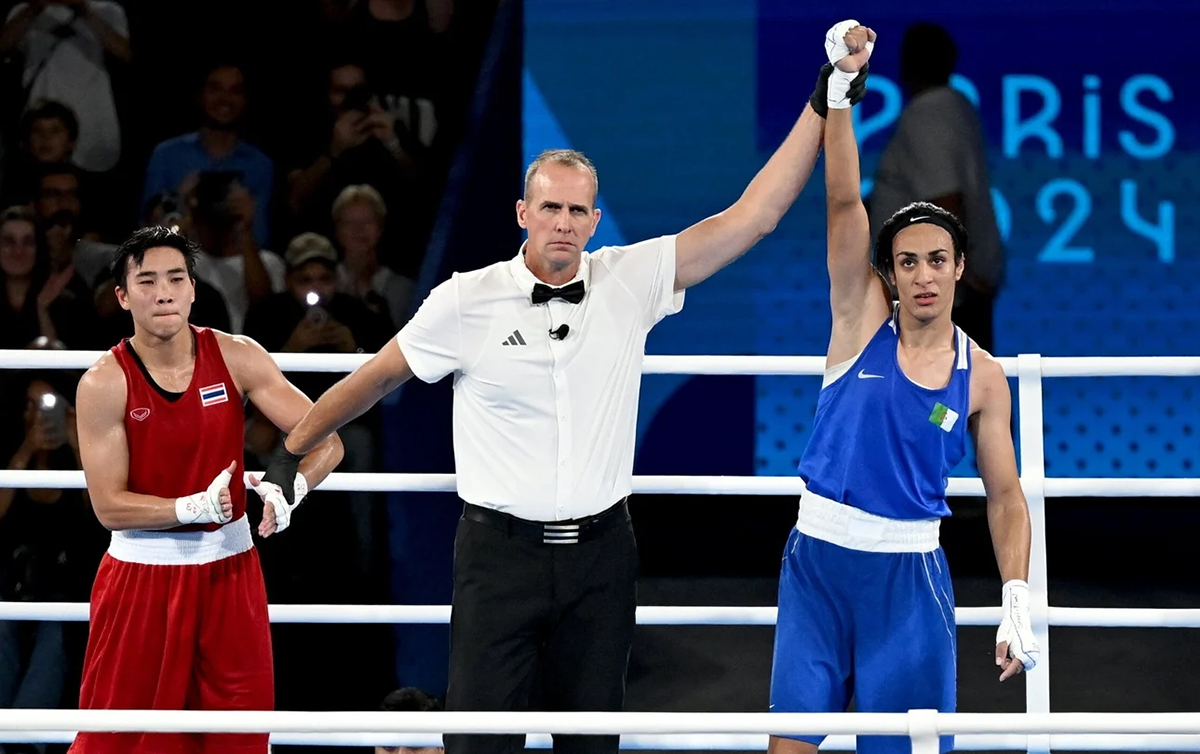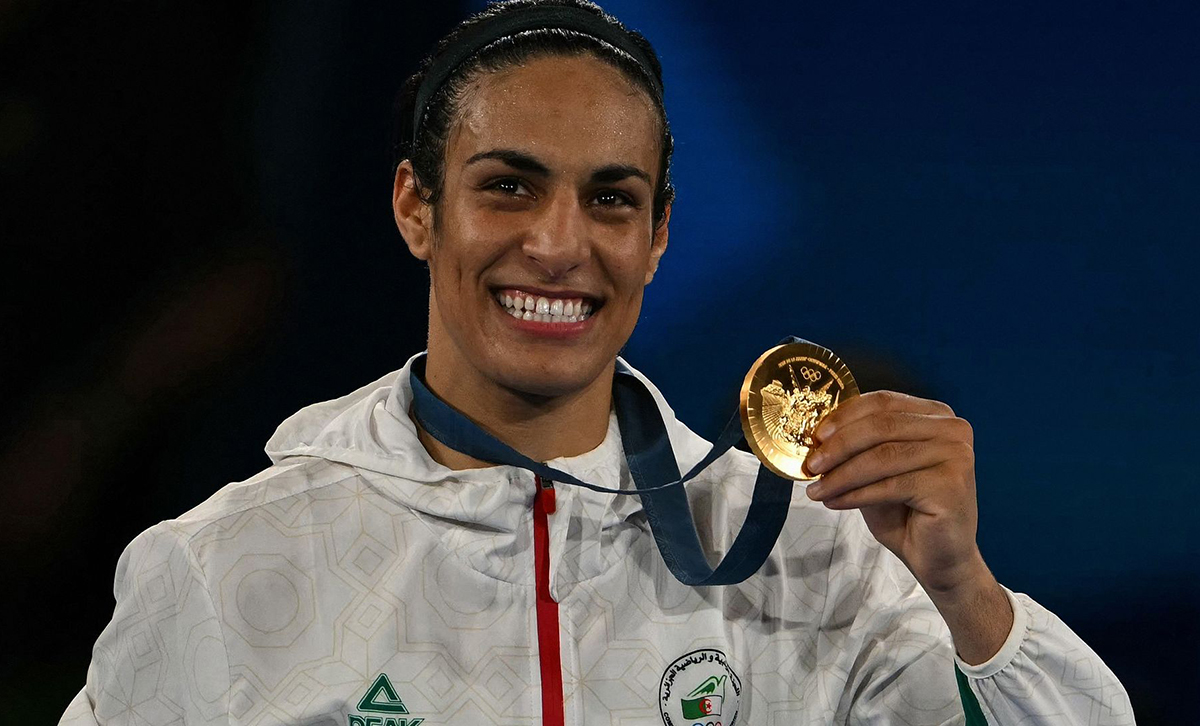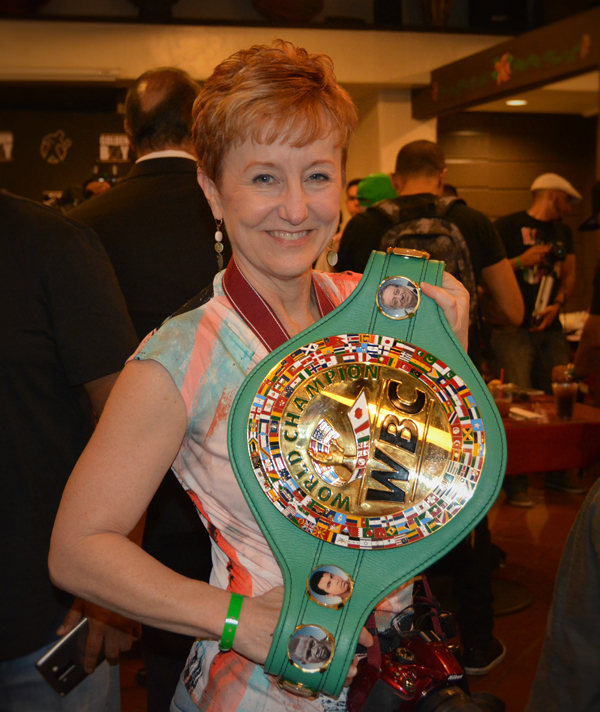On Friday, World Boxing, the new governing organization now overseeing international amateur boxing including the 2028 Los Angeles Olympic Games, announced it will introduce mandatory sex testing to determine the eligibility of male and female athletes who want to take part in its competitions, effective on July 1, 2025, largely as a result of the controversy over Algerian boxer Imane Khelif.
In a release issued by World Boxing, it states the introduction of mandatory testing will be part of a new policy on “Sex, Age and Weight” to ensure the safety of all participants and deliver a competitive level playing field for men and women.
New Sex Testing Policy Still Being Finalized
The policy isn’t completed as of publication. World Boxing stated that the policy “is in the final stages of development and has been crafted by a specially convened Working Group of the World Boxing Medical and Anti-Doping Committee, which has examined data and medical evidence from an extensive range of sources and consulted widely with other sports and experts across the world.”
Given the furor over Algerian boxer Imane Khelif, who won a gold medal at the Paris 2024 Olympic Games, specific statements included in the release zero right in on the controversy.
World Boxing made a significant point in its release by calling out Khelif and the Algerian Boxing Federation.
“In light of plans to introduce this policy and the particular circumstances surrounding some boxers that competed at the Paris 2024 Olympic Games, World Boxing has written to the Algerian Boxing Federation to inform it that Imane Khelif will not be allowed to participate in the female category at the Eindhoven Box Cup or any World Boxing event until Imane Khelif undergoes sex testing.
“This decision reflects concerns over the safety and wellbeing of all boxers, including Imane Khelif, and aims to protect the mental and physical health of all participants in light of some of the reactions that have been expressed in relation to the boxer’s potential participation at the Eindhoven Box Cup.’
World Boxing Letter Addresses Imane Khelif Controversy
The letter sent by World Boxing to the Algerian Boxing Federation on May 30, 2025, states:
“Imane Khelif may not participate in the female category at the Eindhoven Box Cup, 5-10 June 2025, and any World Boxing event until Imane Khelif undergoes genetic sex screening in accordance with World Boxing’s rules and testing procedures.
“In accordance with the World Boxing Statutes, amendments to the Competition Rules are typically made by Congress. However, under special or emergency circumstances, the World Boxing Executive Board holds the authority to make immediate amendments when a rule is deemed no longer functional or when evolving conditions necessitate a change.
“In May 2025, the Executive Board exercised this authority and adopted new eligibility criteria for participation in sex-specific boxing categories. These new eligibility rules were developed with the express purpose of safeguarding athletes in combat sports, particularly given the physical risks associated with Olympic-style boxing.
“Please be advised that, per World Boxing policy, “…in the event the athlete’s sex certification is challenged by the athlete’s federation or by World Boxing, the athlete shall be ineligible to compete until the dispute is resolved…”
This decision is designed solely to ensure the health and safety of all participants in World Boxing competitions (including Imane Khelif) and is not deemed to in any way prejudge the outcome of any testing that will be introduced as part of the new policy on “Sex, Age and Weight.”
New Policy Mandates PCR Genetic Test
World Boxing’s new policy and the introduction of testing will mean that all athletes over the age of 18 who want to participate in a World Boxing-owned or sanctioned competition will need to undergo a PCR (polymerase chain reaction) genetic test to determine their sex at birth and their eligibility to compete.
The PCR test is a laboratory technique used to detect specific genetic material, in this case, the SRY gene, which reveals the presence of the Y chromosome and indicates biological sex. The test can be conducted by nasal/mouth swab, saliva, or blood.
Athletes who are deemed to be male at birth, as evidenced by the presence of Y chromosome genetic material (the SRY gene) or with a difference of sexual development (DSD) where male androgenization occurs, will be eligible to compete in the male category.
Athletes who are deemed to be female at birth, as evidenced by the presence of XX chromosomes or the absence of Y chromosome genetic material (the SRY gene) or with a DSD where male androgenization does not occur, will be eligible to compete in the female category.
World Boxing went on to state that it “respects the dignity of all individuals and its overriding priority is to ensure safety and competitive fairness to all athletes.” To do this, World Boxing said it is “essential that strict categories, determined by sex are maintained and enforced, and means that World Boxing will only operate competitions for athletes categorized as male or female.”
Under the new policy, national federations will be responsible for testing and will be required to confirm the sex of their athletes when entering them into World Boxing competitions by providing a certification of their chromosomal sex, as determined by a PCR test. This means USA Boxing will be responsible for testing American athletes in amateur competition.
A failure to provide certification of the chromosomal sex of an athlete or the provision of a false certification will render the athlete ineligible to compete and may lead to sanctions against the athlete and/or the athlete’s National Federation.
What Happens When Test Results Are At Odds?
Where test results for boxers that want to compete in the female category reveal Y chromosome genetic material and a potential DSD, World Boxing will require the initial screenings to be referred to independent clinical specialists for genetic screening, hormonal profiles, anatomical examination, or other evaluation of endocrine profiles by medical specialists.
As part of its new policy, World Boxing will reserve the right to do genetic sex screening on new or existing athlete samples to confirm certification. The policy will include an appeals process. Support will be offered to any boxers who provide an adverse test result.
The new “Sex, Age and Weight” policy will come into force from July 1, 2025.
What this doesn’t account for will be athletes who are categorized as “intersex,” meaning on a genetic level they do not meet the definitive standards of either male or female gender, but carry qualities of both.
There are reportedly 125 different variations scientifically. There have been multiple high-level athletes who had no idea they were intersex until they got genetic testing. In athletics, where testing is more common, it resulted in bans for Caster Semenya, Francine Niyonsaba, and Margaret Wambui, who won all three medals at the 2016 Rio women’s 800 meters competition. This number will only go up as more testing is required.
World Boxing was launched in April 2023 with a mission to ensure that boxing remains at the heart of the Olympic movement. It held its first formal meeting with the IOC in May 2024, and on February 25, 2025, it was granted provisional recognition by the IOC as the International Federation (IF) within the Olympic Movement governing the sport of boxing at the world level. On March 20, 2025, the IOC confirmed that boxing has been restored to the LA28 Olympic Games.
Further information on World Boxing is available at www.worldboxing.org.
Does This Settle The Gender Controversy?

Khelif came under tremendous scrutiny along with Lin Yu-ting of Taiwan, both of whom won gold medals in Paris last summer. Khelif, age 28, had never been questioned regarding her eligibility for competition in women’s amateur boxing until 2023.
The previous governing body for Olympic boxing, the International Boxing Association, disqualified both fighters from its 2023 world championships after claiming they had failed an unspecified eligibility test. The legitimacy of the IBA’s claims was compromised by political friction within the Russian-dominated organization to the extent that the IBA was removed as the governing body for Olympic competition. World Boxing is its new replacement.
Khelif and her national federation denied the IBA’s allegations, and no scientific proof has ever been presented.
According to respected fact-checking organizations, such as Snopes, various unverified “leaks” of Khelif’s alleged medical tests have never been verified.
What we do know is that gender is not as easy to determine as it seems, all arguments about testosterone or how someone “looks” aside.
World Boxing’s new standards are apparently intended to quash the controversy, which dominated worldwide attention to Olympic boxing in Paris. World Boxing was under pressure to establish a protocol for gender verification, driving its announcement.
Will this be good enough for the critics? Will this be too much to ask of the national boxing federations, many of which operate on a shoestring, including USA Boxing? Who will foot the cost for the testing?
Plenty of questions still need answers. While there is a three-year time period to work out the details before the next Olympic Games, there will be numerous world-level amateur boxing competitions before then. Stay tuned.

